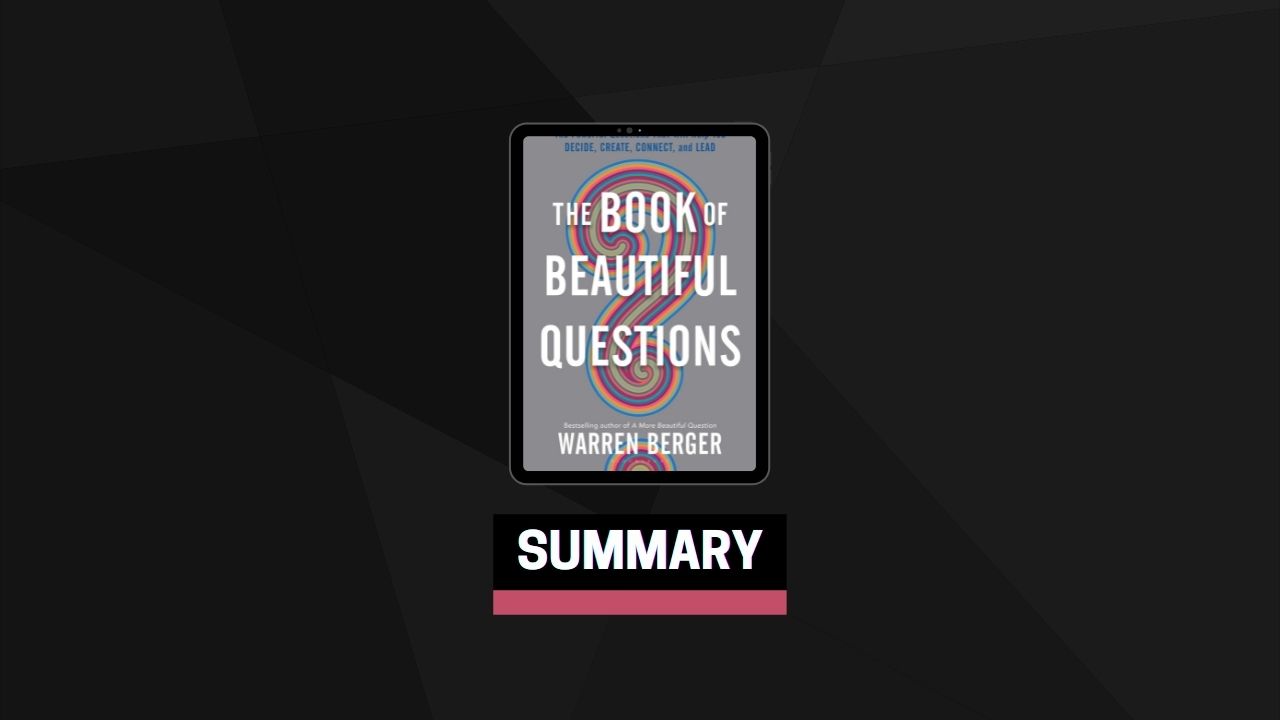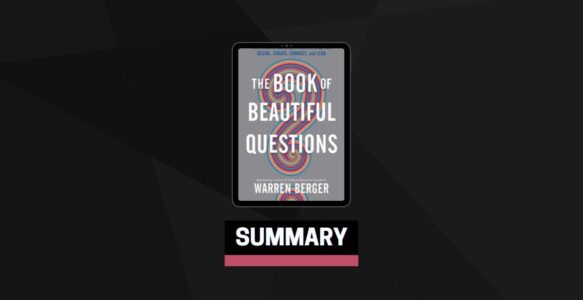Why is questioning now more important than ever?
Having strong questioning skills has always been important. But in a time of exponential change, it’s a twenty-first-century survival skill. From an individual career standpoint, continued success will depend on having the ability to keep learning while updating and adapting what we already know. We must continually invent or reinvent the work we do every day. None of this is possible without constant questioning.
In the same way that individuals in this dynamic work environment will be forced to keep inquiring and learning in order to survive and prosper, organizations must do likewise. Even the most established, successful businesses are in a state of upheaval now—brought on by technological change, globalization, and the other forces reshaping just about every industry in the modern business world and having a similar impact on nonprofit organizations, government agencies, and schools at all levels.
An underappreciated quality of questions is that the right ones can be quite propulsive—as opposed to having the assumed effect of slowing things down or paralyzing us with doubt. If I’m feeling uninspired, the right question can open up a new avenue of thinking. If I’m feeling “stuck” and ready to give up on a creative project, questioning can be used to talk myself down from the ledge. If I’m having trouble determining whether my idea is good and where it might need help, questioning can guide the necessary analysis or be used to solicit feedback from others.
Can questions bridge the gap between us?
Increasingly, we turn to technology as a means of generating more connections. But more is not necessarily deeper—and when it comes to life-enriching connections, deeper is better. In the effort to forge deeper, more meaningful human connections, one of the great, under-appreciated tools available is the low-tech question.
On the most basic level, questions help us understand, and empathize with, other people. When you ask someone else a question, you are showing interest and providing an opportunity for that person to share thoughts, feelings, and stories. The better the question, the more it invites such sharing.
When we’re close to people and know them well (a spouse, family members, a business partner, a lifelong friend), we tend not to ask them questions. A powerful change can occur in these relationships when we shift away from advising, criticizing, opining—and toward the direction of asking and listening. That shift to “asking mode” can even transform adversarial relationships—the kind that are tearing much of our society apart these days at town halls and holiday dinners.
Why should I question my own decisions?
The “gut” truly became hip after Malcolm Gladwell’s popular 2005 book, Blink, which told stories of split-second, instinctive decisions that turned out astonishingly well.
But a growing body of research has concluded that our instincts—our natural tendencies to think or react in certain ways when faced with a decision—aren’t as trustworthy as we might believe. We’re subject to inherent biases, false confidence, irrational risk aversion, and any number of decision-making pitfalls. Katherine Milkman of the University of Pennsylvania’s Wharton School, who has researched and written extensively on decision-making, says: “The science simply doesn’t support the value of following your gut—in fact, it supports exactly the opposite approach to decision-making.” The psychologist and decision-making expert Daniel Levitin concurs: If you make decisions based on instinct, he says, “your gut is going to be wrong more than it is right.”
So what can we do about that? When it comes to important decisions, we can put less trust in feelings and more in evidence. We can seek input from outside sources and differing perspectives—to try to see past our own biases and limited views. We can generate more options to choose from when making a decision (which experts say is a key element in arriving at better decisions). We can also factor in our innate tendencies to be overly cautious or too focused on short-term benefits, and strive to make decisions that are bolder and more forward-looking.
But we can’t do any of that unless we’re willing to think about—and ask questions about—the decisions we make, as we’re making them.
Why create?
The questions that can help inspire and nurture your own creativity are, like the decision-making questions designed to help shift perspective at critical moments—enabling you to see creative opportunities (and challenges) in a new light. But they’re also meant to help in navigating the ups and downs of creating—and to provide an occasional boost to the “creative confidence” that, as the Kelley brothers note, is within all of us, whether we realize it or not.
While most of the questions to follow will address the “how” of creating, I tend to think it’s wise to begin with “why.” Making the commitment to be creative is a major undertaking. Why be creative? There is an abundance of great creative work out there already. Why add to the pile? There’s no way of knowing if your creative work will be financially rewarding, or even whether it will be liked by anyone, including yourself. Why take the risk?
Considering these questions at the outset can help you decide in favor of creativity—and that decision, in and of itself, can have a surprising effect. The psychologist Robert Sternberg studied successful creative people and found that, at some point, they’d made a conscious decision in favor of being creative. Sternberg concluded that, “without the decision, creativity will not emerge.” In light of Sternberg’s findings, perhaps the first question any of us should ask about creativity is: Am I willing to decide in favor of it? And if so, why?
There are many potential answers, but here is a good one to start with: Even if your creative work never goes beyond the room where you labor over it, it can have a highly positive impact—on you.
Why connect?
Most of us have been using questioning to connect with people around us since childhood. In fact, as with most things question related, we were probably doing it better then than we are now as adults. Children come to realize, at an early age, that a question is a means to engage4
With the people around them and to draw information out of them. It greases the skids of communication and gives people a sense of what they should say back to you. (All you need do is answer the question.) Kids seem to understand intuitively that the question is not only a tool for gathering information but also for breaking the ice.
Over time, we begin to use that questioning tool less in social interactions—and to the extent we use it, we often misuse it. Some of the more common misuses: We ask rote, incurious questions out of habit (How are you?); we ask questions that are really just critical statements in disguise (What were you thinking?); and we express opinions or dispense advice in the form of questions (Why don’t you just do this?). These types of questions may fill dead air or provide the self-satisfaction that comes with “venting,” but they don’t contribute much to the building of relationships. They don’t show true interest, don’t create understanding, and don’t build rapport
To get better at asking the kinds of questions that do forge deeper connections with the people around us, we need to do a few things: endeavor to ask “authentic” questions rooted in curiosity; try to suspend judgment and withhold advice as we focus more on inquiry; take a small risk by being willing to ask open-ended, “deeper” questions (even of people we may not know very well); and be willing to listen carefully and follow up on what we’re hearing with questions that gently probe a little deeper.
How might I begin to act on my questions?
Questioning plus action can lead to change (Q + A = C), whereas questioning minus action equals Philosophy (Q − A = P). There’s nothing wrong with philosophy, but this book is more geared to using questions to attain practical results—whether in your work, your relationships, or other aspects of your life. For that to happen, you must put the questions to work for you.
Admittedly, this is not always easy to do. The natural human tendency is to behave in instinctive ways, to do things quickly and without much thought or to follow habitual patterns of behavior. Through much of our lives, we’re operating on “automatic pilot,” and that’s not entirely a bad thing. Sometimes it helps us to get more done, or allows for pleasant and even productive daydreaming. But there are times—when we’re making a meaningful decision, trying to solve a problem or creative challenge, or having an important conversation, for example—when it can be beneficial to shift to a more deliberate, thoughtful mode, using questioning to prompt or guide our thinking.
Try converting 10 percent of that media consumption time into active thinking time. All it requires you to do is find some version of a cave or tortoise shell or path in the woods—a place where the world cannot get at you for a while. When you go there, leave your phone behind; bring only your questions.
Doing this on a regular basis requires forming a new questioning habit—and research suggests when you’re trying to establish a new habit (or break an old one), you should use a system of rewards.
So ask yourself, How might I reward myself for questioning? Two ideas come to mind: The first is to allow yourself to check email or social media only after a period of quiet reflection. The second is to give yourself one decadent treat for every beautiful question you formulate.


